A UK free trade deal with the Gulf Cooperation Council offers significant potential for meat and dairy products. However, there are a number of issues to solve around Halal slaughter of beef cattle, a Westminster committee of MPs have been told.
Giving evidence to the international trade committee last Wednesday, Dr Awal Fuseini from the Agriculture and Horticulture Development Board (AHDB) outlined how the current method of pre-slaughter stunning might not be acceptable in Muslim countries.
“Many Muslims do not agree with captive bolt stunning of large ruminants – the animal cannot recover, so it is not consistent with Halal requirements. The majority of Muslims will not consume beef slaughtered with that method,” claimed Fuseini.
The big beef importers into the Gulf States are New Zealand (NZ) and Australia, who utilise electrical stunning, and have been able to prove that the animal is not dead at the time of slaughter – in fact, the animal is able to recover and get back on its feet.
Citing the example of NZ, Fuseini maintained that the electrical stunning method used is illegal in the UK.
Despite that, beef from NZ can be imported into the UK. “That puts us at a disadvantage,” he said.
Also giving evidence, Peter Stevenson from Compassion in World Farming (CiWF) was critical of the approach used in NZ and Australia, claiming that a head-only electrical stun will probably mean the animal regains consciousness before it bleeds to death.
“We have got to find that right balance between good animal welfare (a genuine stun that renders an animal unconscious) and meeting Halal standards,” he suggested.
Stevenson would also like to see the UK taking the opportunity in trade negotiations to raise the issue of abattoir standards in the Gulf States.
While he accepted that “an occasional slaughterhouse does it well”, it is not the norm.
“Of all the things I have seen in 30 years of working on farm animal welfare, nothing is as utterly upsetting as slaughter in the Middle East,” he claimed.
Who are the
Gulf States?
The Gulf Cooperation Council is made up of Bahrain, Kuwait, Oman, Qatar, Saudi Arabia and the UAE. The first round of negotiations on a potential free trade agreement with the UK took place in August and September 2022.
DUP MP critical of live calf exports
Live export of UK farm animals to the EU is not currently possible due to a lack of suitable border control posts post-Brexit, but longer term, legislation currently going through Westminster will ban the practice.
The Animal Welfare (kept animals) Bill will prohibit the export of live cattle, sheep, pigs, goats and equines for slaughter, including for fattening for subsequent slaughter.
However, under the terms of the NI Protocol, the legislation will not apply to NI, meaning that NI will continue to be able to move animals to the Republic of Ireland, and potentially on to the EU. It is an important trade for calf exports, in particular.
“How can we close that loophole and ensure that the Protocol is not driving a coach and horses through it? It is a safety issue for our food,” suggested south Antrim MP, and International Trade Committee member, Paul Girvan.
Responding to Girvan, Peter Stevenson from CiWF said he had no issue with short cross-border journeys in Ireland, but did highlight concerns with calf exports, suggesting there is evidence that once calves arrive in France they are “treated brutally”.
He was also fiercely critical that the EU continues to allow live cattle and sheep exports to the Middle East, which he said was “to their great shame”.
Big opportunities in Gulf States
With a growing middle class and high disposable incomes, there are some big export opportunities in the Gulf region for sheep, dairy and potentially beef, NFU director Nick von Westenholz told the international trade committee last Wednesday.
He said that import tariffs (taxes) on food are generally low (typically 5%), but what a free trade deal could help solve are non-tariff barriers. “It is just difficult to do business there at present,” added Dominic Goudie from the Food and Drink Federation.
Read more
Under 30-month slaughter rule lifted for beef exports to Saudi
Ireland strong on sustainability at Gulfood
A UK free trade deal with the Gulf Cooperation Council offers significant potential for meat and dairy products. However, there are a number of issues to solve around Halal slaughter of beef cattle, a Westminster committee of MPs have been told.
Giving evidence to the international trade committee last Wednesday, Dr Awal Fuseini from the Agriculture and Horticulture Development Board (AHDB) outlined how the current method of pre-slaughter stunning might not be acceptable in Muslim countries.
“Many Muslims do not agree with captive bolt stunning of large ruminants – the animal cannot recover, so it is not consistent with Halal requirements. The majority of Muslims will not consume beef slaughtered with that method,” claimed Fuseini.
The big beef importers into the Gulf States are New Zealand (NZ) and Australia, who utilise electrical stunning, and have been able to prove that the animal is not dead at the time of slaughter – in fact, the animal is able to recover and get back on its feet.
Citing the example of NZ, Fuseini maintained that the electrical stunning method used is illegal in the UK.
Despite that, beef from NZ can be imported into the UK. “That puts us at a disadvantage,” he said.
Also giving evidence, Peter Stevenson from Compassion in World Farming (CiWF) was critical of the approach used in NZ and Australia, claiming that a head-only electrical stun will probably mean the animal regains consciousness before it bleeds to death.
“We have got to find that right balance between good animal welfare (a genuine stun that renders an animal unconscious) and meeting Halal standards,” he suggested.
Stevenson would also like to see the UK taking the opportunity in trade negotiations to raise the issue of abattoir standards in the Gulf States.
While he accepted that “an occasional slaughterhouse does it well”, it is not the norm.
“Of all the things I have seen in 30 years of working on farm animal welfare, nothing is as utterly upsetting as slaughter in the Middle East,” he claimed.
Who are the
Gulf States?
The Gulf Cooperation Council is made up of Bahrain, Kuwait, Oman, Qatar, Saudi Arabia and the UAE. The first round of negotiations on a potential free trade agreement with the UK took place in August and September 2022.
DUP MP critical of live calf exports
Live export of UK farm animals to the EU is not currently possible due to a lack of suitable border control posts post-Brexit, but longer term, legislation currently going through Westminster will ban the practice.
The Animal Welfare (kept animals) Bill will prohibit the export of live cattle, sheep, pigs, goats and equines for slaughter, including for fattening for subsequent slaughter.
However, under the terms of the NI Protocol, the legislation will not apply to NI, meaning that NI will continue to be able to move animals to the Republic of Ireland, and potentially on to the EU. It is an important trade for calf exports, in particular.
“How can we close that loophole and ensure that the Protocol is not driving a coach and horses through it? It is a safety issue for our food,” suggested south Antrim MP, and International Trade Committee member, Paul Girvan.
Responding to Girvan, Peter Stevenson from CiWF said he had no issue with short cross-border journeys in Ireland, but did highlight concerns with calf exports, suggesting there is evidence that once calves arrive in France they are “treated brutally”.
He was also fiercely critical that the EU continues to allow live cattle and sheep exports to the Middle East, which he said was “to their great shame”.
Big opportunities in Gulf States
With a growing middle class and high disposable incomes, there are some big export opportunities in the Gulf region for sheep, dairy and potentially beef, NFU director Nick von Westenholz told the international trade committee last Wednesday.
He said that import tariffs (taxes) on food are generally low (typically 5%), but what a free trade deal could help solve are non-tariff barriers. “It is just difficult to do business there at present,” added Dominic Goudie from the Food and Drink Federation.
Read more
Under 30-month slaughter rule lifted for beef exports to Saudi
Ireland strong on sustainability at Gulfood




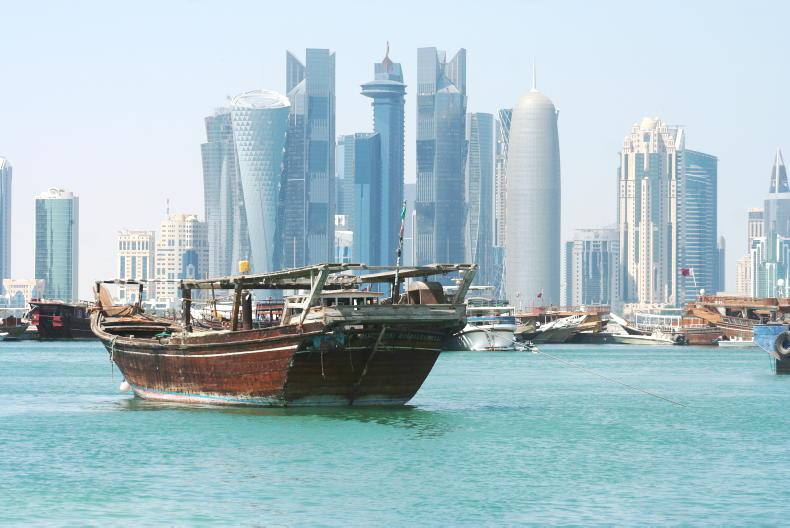
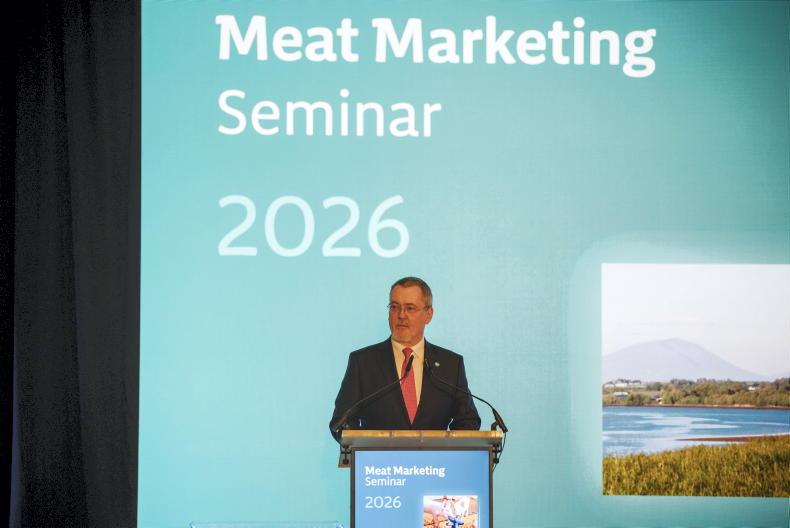

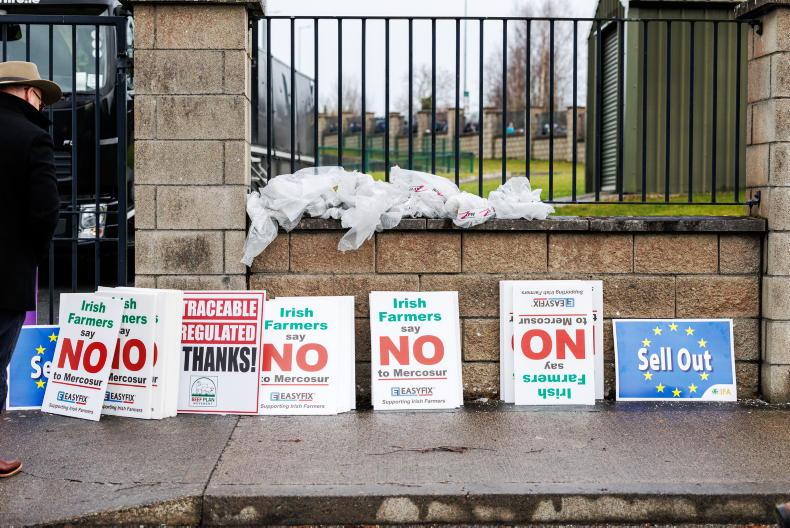
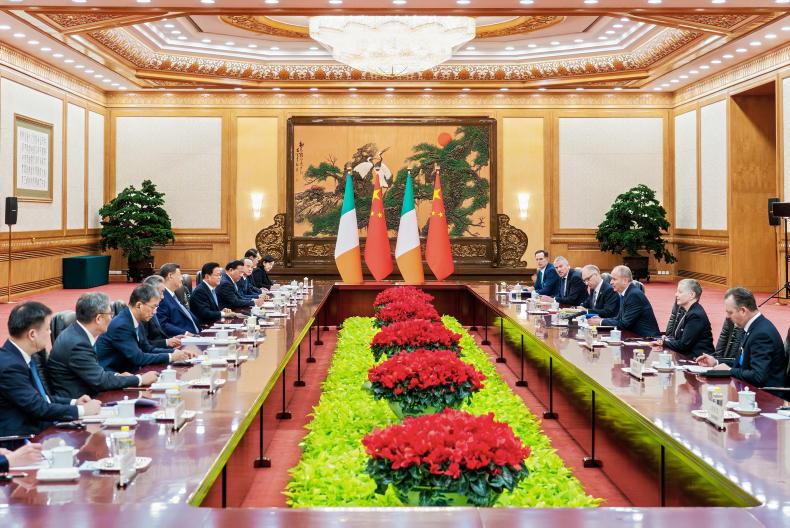
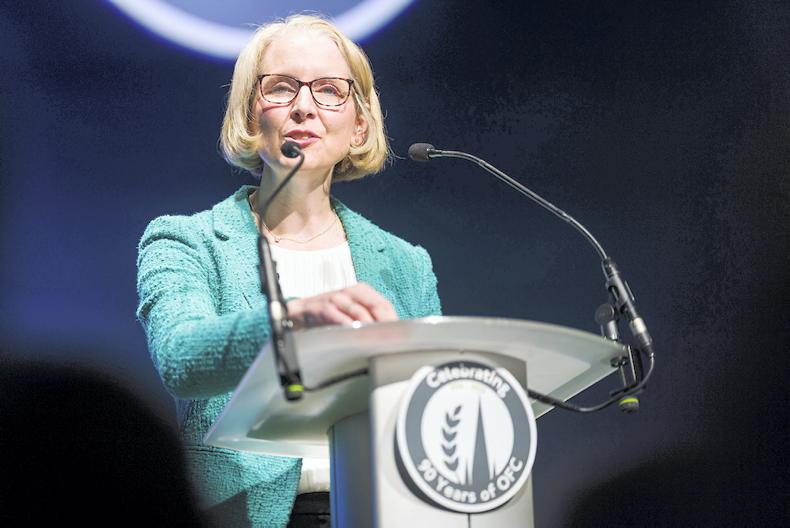
SHARING OPTIONS